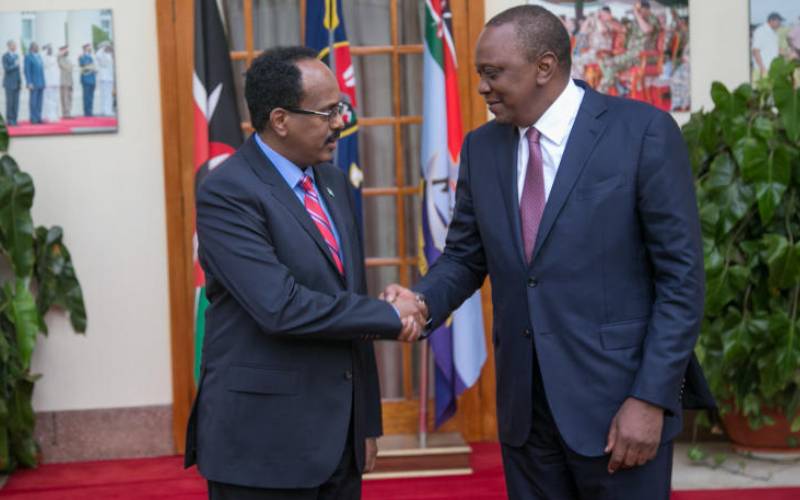×
The Standard e-Paper
Home To Bold Columnists

President Uhuru Kenyatta with the President of the Federal Republic of Somalia, Mohamed Abdullahi Mohamed, at State House, Nairobi. [PSCU]
The Swahili speaking community of Kenya’s coastal region have a saying which loosely translates to “it is the grass that suffers whenever two bulls fight”.